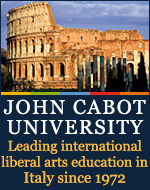
| IIE Home | Membership | Publications | Open Doors | Contact Us |
| Connect with Us |
Archives |
IIE Attends Conference on Latin America at Georgetown University Representatives from the Institute of International Education (IIE) attended a conference at Georgetown University this week entitled "Making Latin America and the Caribbean a More Equitable Society: Economic Growth, Education, and Corporate Social Responsibility." The conference was sponsored by the Bureau of Western Hemisphere Affairs, in partnership with the U.S. Department of Commerce and Georgetown University. This two-day conference brought together business, government, and education officials throughout the Americas to discuss topics that ranged from public-private partnerships in higher education to building international education networks and exchanges. During his keynote address, Francisco J. Sanchez, the Under Secretary of Commerce for International Trade at the U.S. Department of Commerce, asserted that "the Western Hemisphere of tomorrow depends on how we educate today." In particular, Under Secretary Sanchez emphasized the importance of education in the Science, Technology, Engineering, and Mathematics fields (STEM), arguing that "a workforce without STEM fields is a workforce that cannot compete." Among the programs that Under Secretary Sanchez praised is Brazil’s Science Without Borders program, which provides scholarships to undergraduate and graduate students from Brazil for one year of study at colleges and universities in the United States and other countries. During a panel on "New Strategies for Public-Private Partnerships," Ricardo Ernst, a professor at Georgetown University, spoke about the need to change the culture of corporations, to make them understand that while investing in education might affect their bottom lines in the short term, it will ultimately benefit them in the long term. In a panel on "Building International Education Networks and Exchanges," Michael M. Crow, the President of Arizona State University, remarked that higher education partnerships are about not only exchanges but also "using universities as vehicles for solving common problems together." He emphasized the creation of partnerships that are project-focused, in which students and professors work together to tackle problems that affect both universities. For more information on the conference, please visit: www.state.gov/r/pa/prs/ps/2012/03/185531.htm. |
| www.iie.org/iienetwork • Member website of the Institute of International Education © 2025 Institute of International Education. All rights reserved. |


